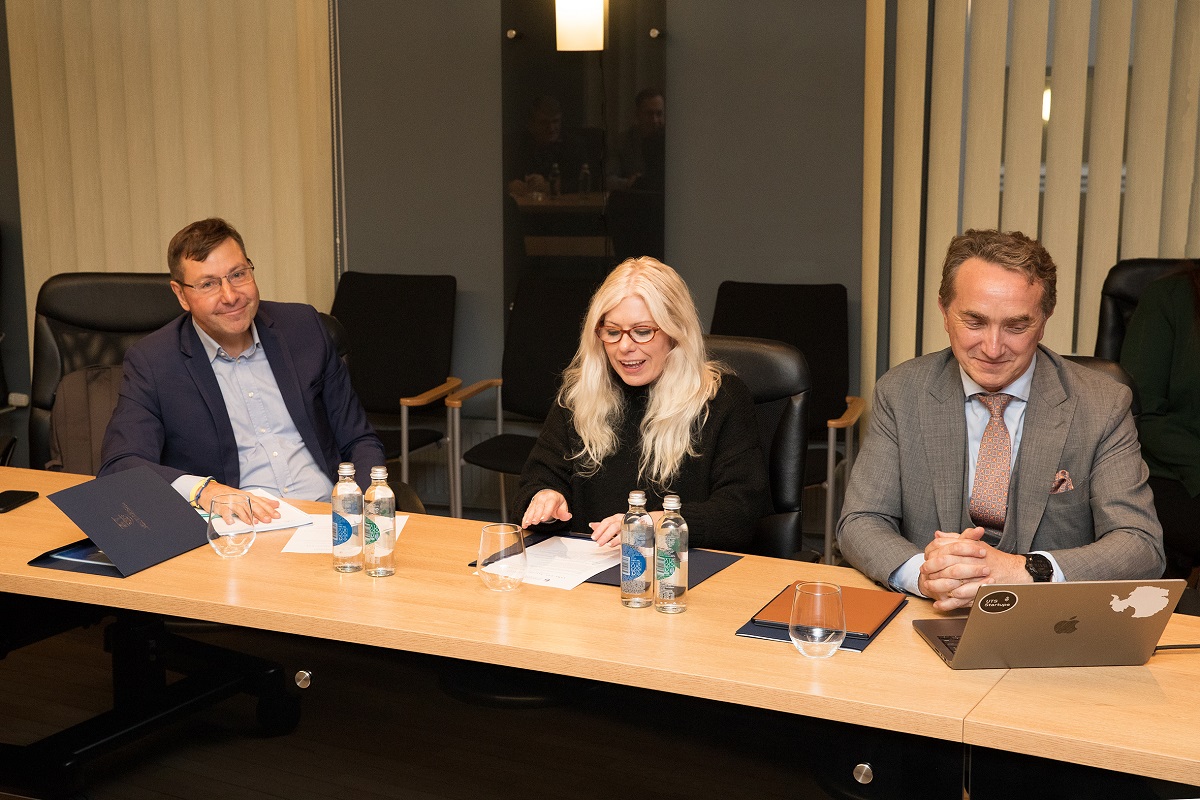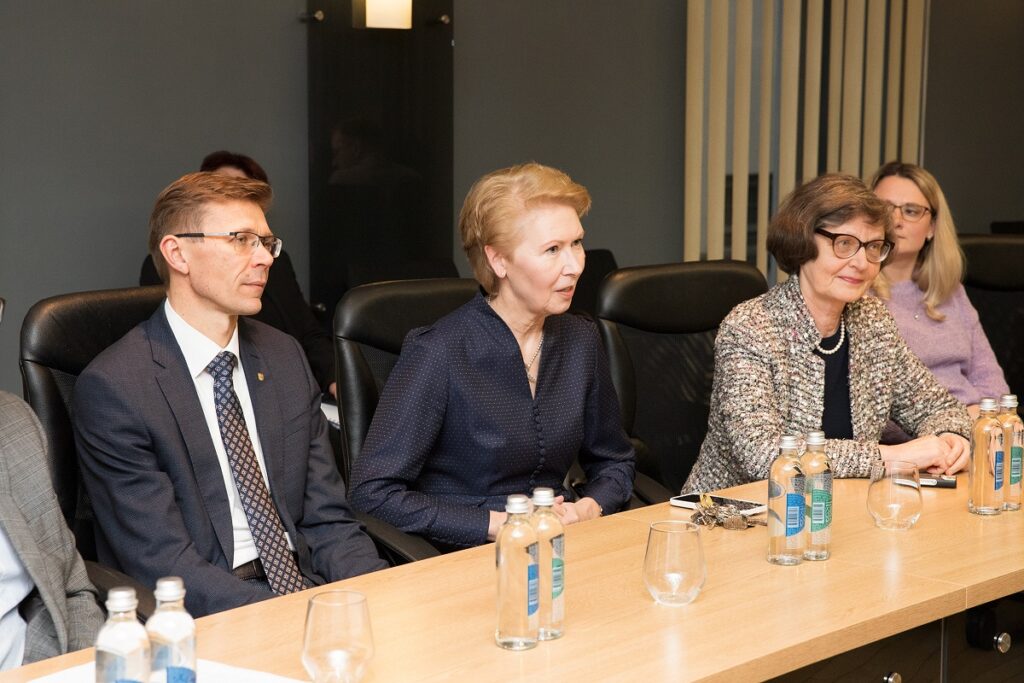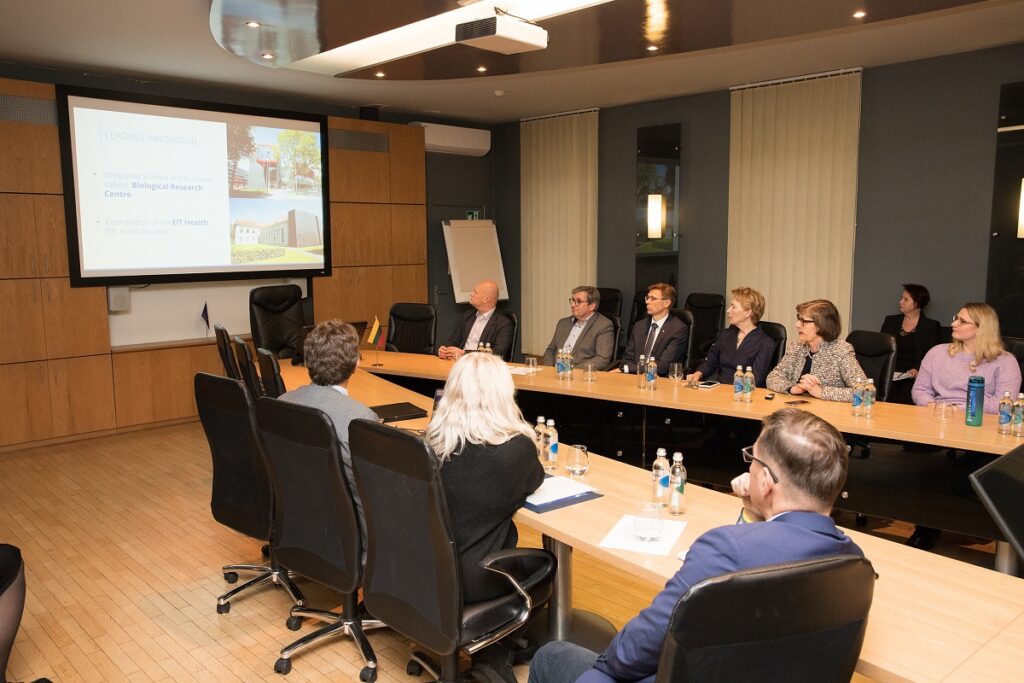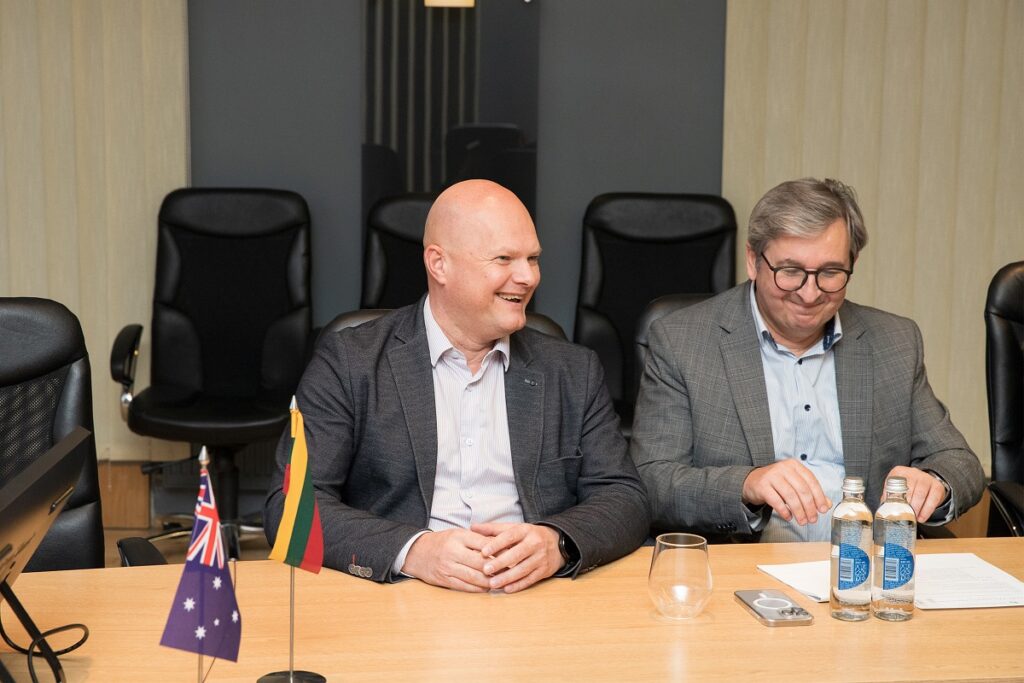Visit by the University of Technology Sydney Delegation: Building Bridges for Global Collaboration

On the 29 November, the Lithuanian University of Health Sciences (LSMU) welcomed a delegation from Australia, including Professor Chris Turney, Pro Vice-Chancellor of Research at the University of Technology Sydney (UTS), and Professor Helene de Burgh-Woodman, Dean of the Graduate Research School at UTS.
“We are here to explore opportunities for comprehensive, interdisciplinary, and long-term collaboration,” summarised Professor Chris Turney, highlighting the purpose of the visit.
The guests were warmly received by Professor Daiva Rastenytė, Chancellor of the LSMU Medical Academy; Professor Mindaugas Malakauskas, Chancellor of the Veterinary Academy; Professor Vaiva Lesauskaitė, Vice-Rector for Research; Dr. Alvidas Šarlauskas, Vice-Dean of the International Relations and Study Centre; Edmundas Šalna, Head of the Health Innovation Development Centre; and Dovilė Uždavinytė, International Project Manager at the Development Department.
Other participants of the meeting also included several LSMU researchers: Dr. Aistė Jekabsone, Senior Researcher at the Preclinical Research Laboratory for Medicinal Products at the Institute of Cardiology; Professor Ričardas Radišauskas; and Associate Professor Vidmantas Vaičiulis from the Department of Environmental and Occupational Medicine under the Faculty of Public Health.
During the meeting, Professor Vaiva Lesauskaitė, Vice-Rector for Research, introduced the visitors to LSMU’s activities and major achievements, while Edmundas Šalna, Head of the Health Innovation Development Centre, presented the latest projects in medical technologies and related fields.
The meeting was constructive and engaging, with a lively exchange of ideas about research funding mechanisms, opportunities for commercialising scientific activities, and identifying areas for potential collaboration between the two universities.
Professor Chris Turney provided insights into UTS, a university that has grown impressively in just 35 years to 49,000 students and 4,000 staff members. “Our studies represent a link between science, technology, and the arts, with health serving as a unifying focus across many of our faculties. We aim for global collaboration and long-term partnerships, which is why we are here,” he noted.
According to the UTS delegation, research projects in Australia are funded through federal funds (the Australian Research Council has allocated $700 million). Industry also plays a significant role in funding, and the country has established a $20 billion the Medical Research Future Fund focused on innovations and projects with high potential for transitioning into production.
Currently, the UTS is particularly interested in joining the European Union’s research and innovation programme “Horizon Europe”. In a few months, a dedicated organisation will be established to facilitate long-term partnerships with European research institutions.
“We have doctoral students, we have funding, and perhaps Horizon Europe could provide additional opportunities – for example, through business ventures or start-up projects,” observed Professor Helene de Burgh-Woodman. The university is keen to collaborate not only in medicine but also in agricultural technologies, as it has built a strong foundation in animal vaccine development and other areas within this sector.
The discussions revealed many topics of mutual scientific interest, and both universities expressed a strong desire to continue their warm collaboration in the foreseeable future.



